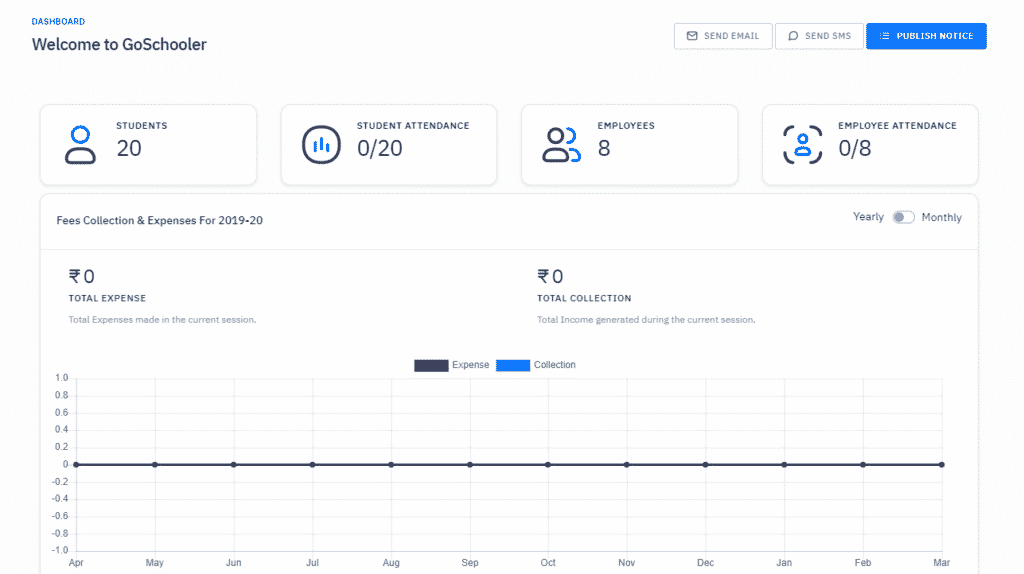Today, an organized set of data and information plays a great role in decision-making. This is true for all kinds of industries such as manufacturing, engineering, transportation, and even the education industry.
True and accurate data is a prerequisite to effective and efficient planning in all types of organizations. Especially in a society where information is always being updated, it is a daunting job to always have the latest and most accurate information.
That is where the management information system comes in. Let us talk about the management affirmation system by defining what it does. Next, the purpose of management information system. And lastly, how to choose one for your organization.
What is a Management Information System?
We can only discuss the importance and purpose of management information system if we clearly define what it is.
In its textbook definition, a management information system is a system made up of different components. These components are the manpower, equipment, procedure, data, and the communication in between these components.
MIS is basically a system that guides organizations on how to collect data and make use of them. That is why it is important in all industries. These data are used to make informed decisions regarding the plans of the organization.
Since we are living in a society surrounded by different technological advancements, the MIS process is now automated. One purpose of management information system is to automate various processes in organizations.
Take, for example, MIS in the education sector. The trend today works in a way that it collects the data of all students upon admission. Then it groups them into different categories and provides comprehensive reports.
These reports may contain information such as student attendance, grades, and even transport schedules. These sets of analytics help school administrators create better policies for all the stakeholders.
Here is an example of how an MIS system looks like.

Further, MIS serves different purposes that are applicable to all industries. For you to have a better grasp of the topic, let us talk about some of the common purpose of management information systems.
Purposes
1. Automation of Processes
One of the most common purposes of a management information system is the automation of different processes. Since MIS can now be found in different software, the tasks involved are now made easier.
The software removes the need for manual labor when it comes to tasks such as producing analysis reports. This is an important feature especially in competitive fields like the equation sector.
In these kinds of environments, time saved equates to efficiency and improved productivity. Therefore, time can be redirected to other projects and things that are beneficial to the institution. So, organizations benefit from tools that help them save time and other resources.
2. Data Collection
As discussed, the MIS primarily deals with data. Data plays an important role in every organization regardless of field. It can even be considered the backbone of operations. Without it, institutions may fail to deliver high-quality services.
So, data collection is an integral part of these organizations. This step may be tedious as it deals with a lot of figures and information.
This is where the MIS software comes in. Another purpose of a management information system is to help organizations from all fields collect data in a faster manner. For example, the software can remove the need for respondents to be physically present.
There are MIS tools that offer online data collection features. This way, the management can collect data simultaneously.
3. Storage and Sorting of Data
After data collection, one of the problems that organizations usually face is data storage and sorting. As institutions expand operations, it may be more complicated to sort and store collected data.
A management information system solves the problem. As it aids data collection, it also provides the mechanism in sorting this data however you want it to be sorted.
For example, school MIS software can help you sort student data by year level, age, or gender. These kinds of organizations will be useful for the future needs of the school. It also cuts down the time needed to find information as it is sorted and readily available.
The MIS software also acts as your storage. You can access all stored data whenever needed by the organization.
4. Provides Useful Reports
The collected data means nothing if it can’t be put together to provide a comprehensive report.
Data will only be useful once it can be interpreted. For example, the attendance of school teachers is just that until it is used for payroll computation.
A good MIS should be able to analyze and provide useful reports like this. These reports will then be used for an informed decision-making process. This way, the management can make sure that future plans are effective.
These plans can either address problems determined from the reports. Or improve an already effective program, which was also evaluated by the said report.
A tool cannot fully fulfill the purpose of a management information system if these points are missing. The management information system software must be able to guide your organization from data collection to analysis.
With that, choosing an effective and efficient system is crucial. Below are some things you can consider when choosing MIS software.
How to Choose an MIS Software
Complete Services
An MIS is a system. Meaning the effectiveness of this system will only be achieved if all components are present. So, when choosing MIS software, make sure that all services are provided.
Take, for example, GoSchooler. It is an educational MIS software that facilitates data collection during the admission process.
It also provides data storage when creating exams and file sharing among stakeholders. Lastly, it provides attendance reports for both the students and school staff.
Your MIS software must serve as a one-stop-shop for data management needs.
Accessible
In choosing one, it is also important to consider the accessibility. A tool that is accessible to all, anytime and anywhere, is more convenient and can help save time.
For example, students can access their grades even if they are in the comforts of their home. They can take exams and submit other school documents online.
This feature is highly recommended today as we are in the middle of a pandemic. This helps lessen the need for physical interaction, therefore, keeping us safe from the virus.
User-friendly
The software must also be user-friendly to be able to cater to different levels of technological literacy. You must always consider your stakeholders when choosing an MIS tool for your organizations.
A tool that offers complex features but cannot be easily understood will fail to fulfill its purpose of streamlining the data management system. If an institution’s stakeholders won’t be able to use the system, then there is no point in acquiring one.
FAQs
Can I integrate MIS in any kind of industry?
For example, GoSchooler is an MIS tool in the education sector.
How do I choose the right MIS tool?
Main Takeaways
A management information system is a great tool for streamlining tedious and complicated data management. That is why it is strongly recommended to procure software or tool that can provide this service.
It helps organizations collect, input, and make use of the available information and sets of data. So, in choosing software, make sure that it can provide these services to ensure the effectiveness and efficiency of the process.







